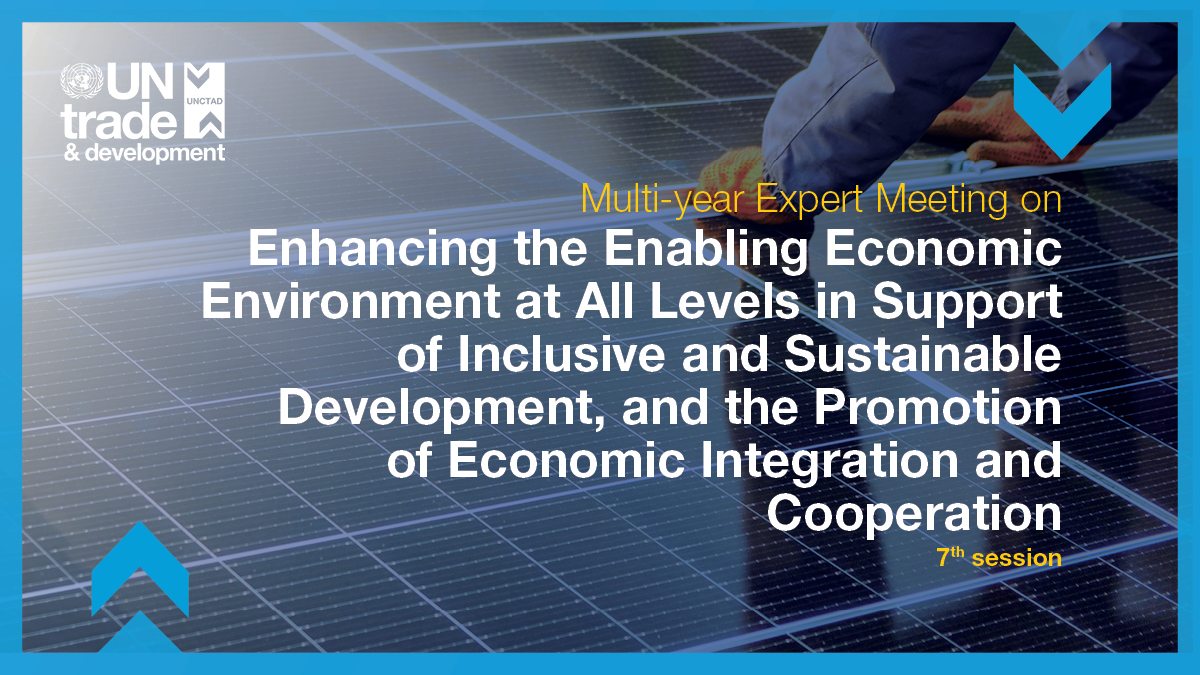Optimizing policy space for development strategies: Productive capacities, value addition and economic diversification
Successful development is based on an open trade regime that expands limited domestic aggregate demand and incentivizes and enables industrial investment that, in turn, generates growth and development, understood as increased productive capacity, by means of backward and forward linkages in the domestic economy, as well as increased productivity and quality.
The current geopolitical context, in which major globalization and fragmentation trends are likely to co-evolve, necessitates discussions of development strategies that optimize policy space across various areas, including international trade; investment, particularly with regard to green and sustainable industries; crisis response; and the promotion of economic resilience.
The persistent difficulty in developing countries is in the identification of trade and investment policies that build productive capacities, promote value addition and foster economic diversification and resilience amid compound crises. Thus, addressing the issue of policy space is crucial, as the primary macroeconomic policy challenge in developing countries is in improving the sectoral composition of their economies in order to support resilience and sustainability in the face of multiple external constraints and the growing costs of climate change.
At present, there are also opportunities for the economies of the global South, including with regard to rapidly increasing South-South trade, enabling growth; and in bargaining for favourable trade, aid and financing conditions. Governance issues and international policy coordination are increasingly important in three key areas.
First, there is an increasing need to ensure greater coordination and coherence among various policies, including those related to competition and consumer protection, trade, industrial strategy, data protection, digitalization, labour and taxation.
Second, artificial intelligence needs to be globally governed through agreed principles and standards.
Third, many countries have access to self-help policies in the search for long-term development finance and domestic revenue mobilization, yet such policies should be nested in a greater global trade and investment regime, to avoid trade conflicts and deflation.
Services-export-led growth as a path to development can only remain feasible if new policy barriers are not enacted and if access to markets and technologies is safeguarded.
Objective of the meeting
The objective of the seventh session is to discuss which trade and investment policies can help developing countries build productive capacities, as well as promote value addition, economic diversification and resilience in a time of compound crises.
Contributed Papers
Experts nominated by member States are encouraged to submit brief papers (approximately 5-12 pages) as contributions to the work of the session, related to their studies, findings and/or national experiences.
The papers will be made available at the session in the form and language in which they are received.
Participation
This session is open to all member States of UNCTAD.
Other organizations, including specialized agencies, intergovernmental bodies and non-governmental organizations in the general and special categories, as well as academia and the private sector, may participate as observers.
Experts will participate in the session in their personal capacities and are expected to have proven expertise in the subject matter.
Registration
Online registration is mandatory for all those wishing to attend the session and is required in order to be included in the list of participants.
Logistics
The session will be held with physical participation in room XXVI of the Palais des Nations.
Those who cannot attend the session in person will be able to listen to the live audio stream in the six official languages of the United Nations.
The link to listen live will be sent to registered participants, at the email address used for registration, one day in advance of the start of the session.

